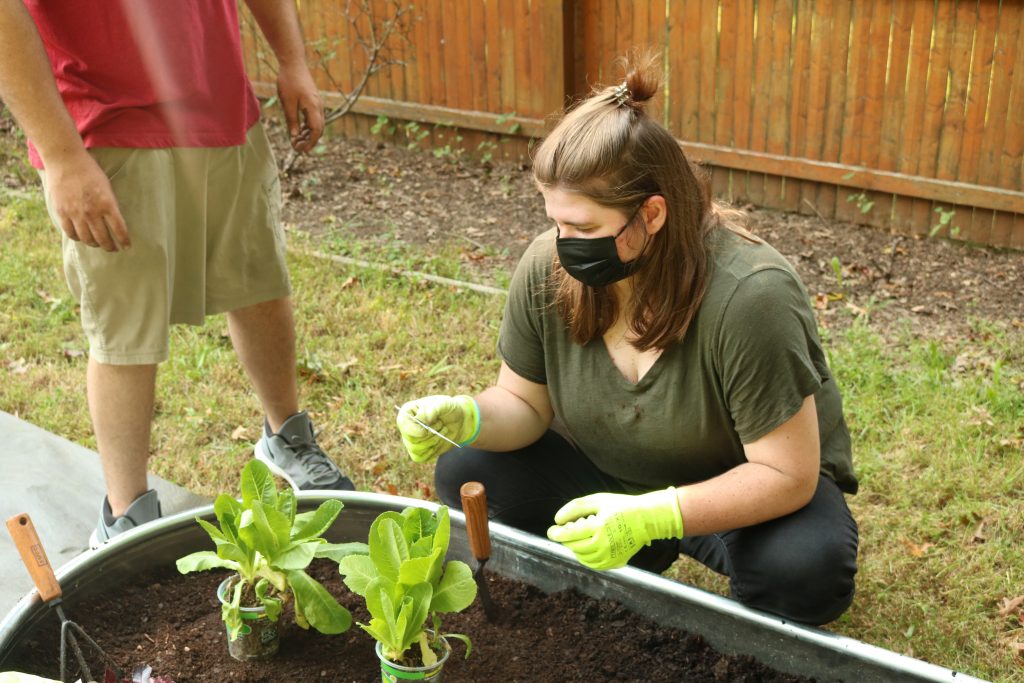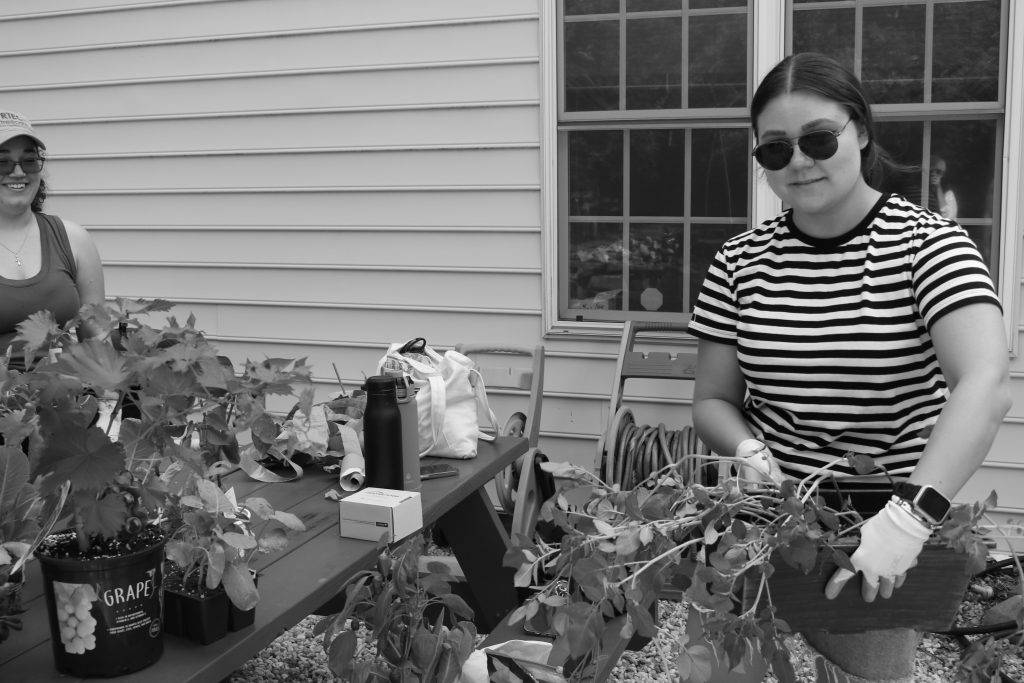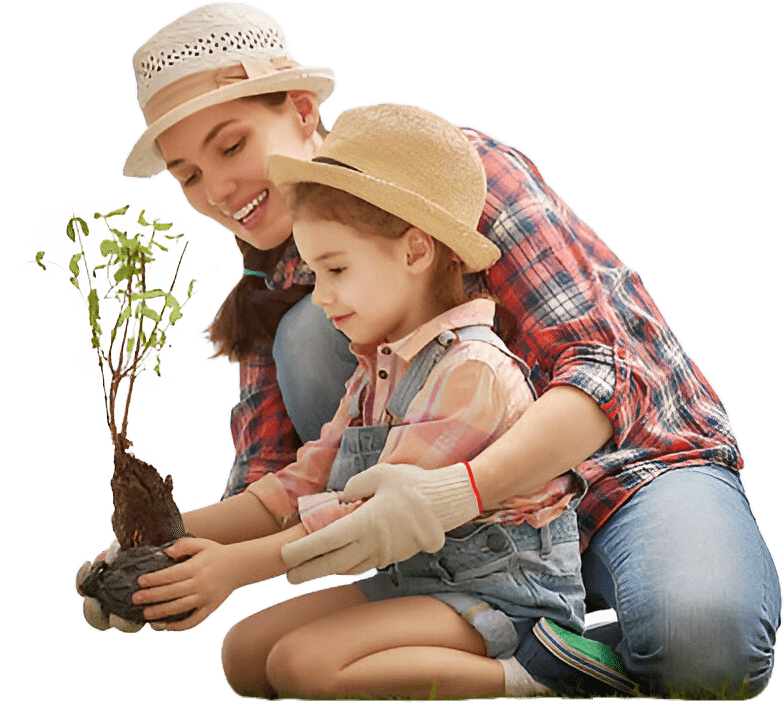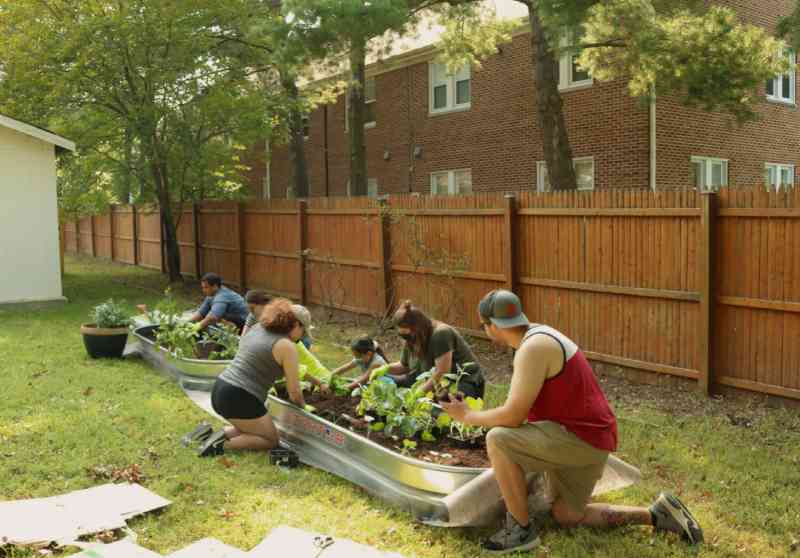
Have you been following along with RTEC and the Environmental Justice Alliance recently? We have partnered with Second Story, a local shelter that assists homeless youth, to bring fresh produce to a community in need. Now that the garden is built, we wanted to share the amazing experience with you! Community gardens have a myriad of benefits that can be enjoyed by anyone who has access to them. Let’s take a look at why community gardens are so important and ways you can improve your local garden!
In case you missed it – this year the Environmental Justice Alliance (EJA) partnered with RTEC to implement the Grow! Program. This program establishes community gardens in areas that would otherwise not have access to healthy fresh produce. Together, our goal was to construct a fruit and vegetable garden at a local shelter for a historically disadvantaged community.
The shelter, Second Story, is near the RTEC headquarters in Falls Church, Virginia. This year they celebrate 50 years of helping our community! The programs expand to over ten service locations in NOVA. Second Story works to break the cycles of abuse, poverty, and homelessness.

Project Recap
Together, the Environmental Justice Alliance, RTEC Treecare, and Second Story worked to provide healthy food to the children and staff at the shelter. This project was completed in three major stages:
Phase One
Clean Up
The first step to building the garden was tidying up the yard in preparation.
Phase Two
Yard Sales and Donations
The second step was to raise money for the garden through yard sales.
Phase Three
Building the Garden
The final step was to build the garden and plant fruits and vegetables!
Community Efforts Plant Seedlings for Spring Harvest



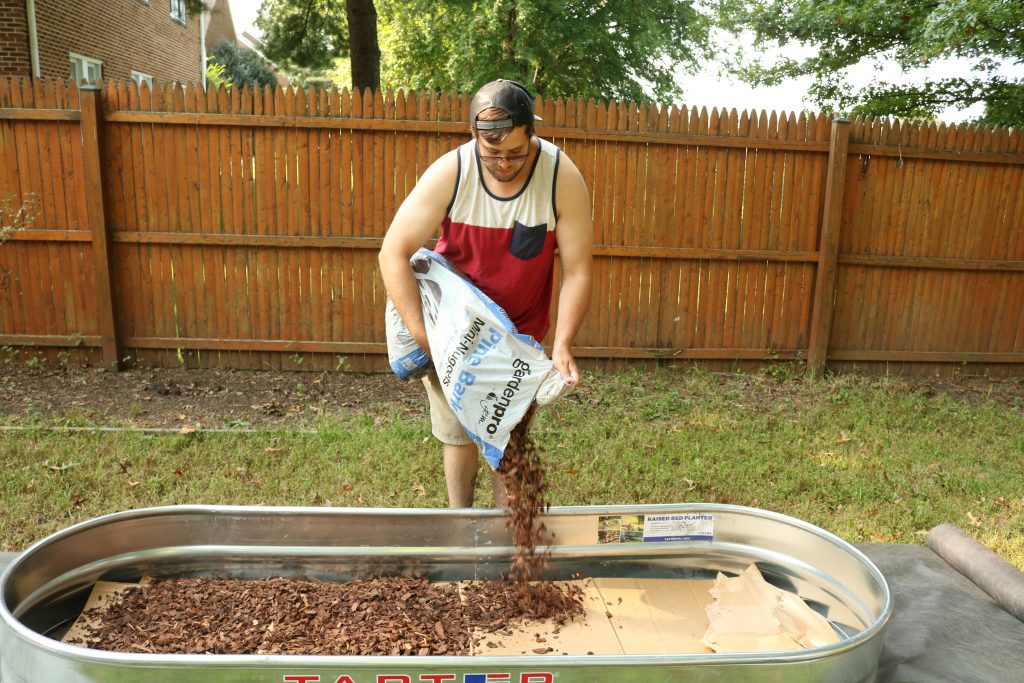
After a successful yard sale, we were able to get all the supplies to build two raised garden beds! First, we used landscape fabric to create a thin but permeable layer between the ground and our beds. This allows water to pass through without any of the soil escaping (it also helps keep the weeds down). Then, we laid down a robust layer of wood chips before layering on organic soil. Next went in the seedlings! Our favorite part was getting hands on with the planting.
Gardening is a simple pleasure, and it was enjoyed by both the kids and adult volunteers! Many of our volunteers had never built a garden before, so the experience was fun and a great learning opportunity.
What We Planted:
- Grapes
- Potatoes
- Sweet Peppers
- Blueberries
- Lettuce
- Cabbage
- Broccoli
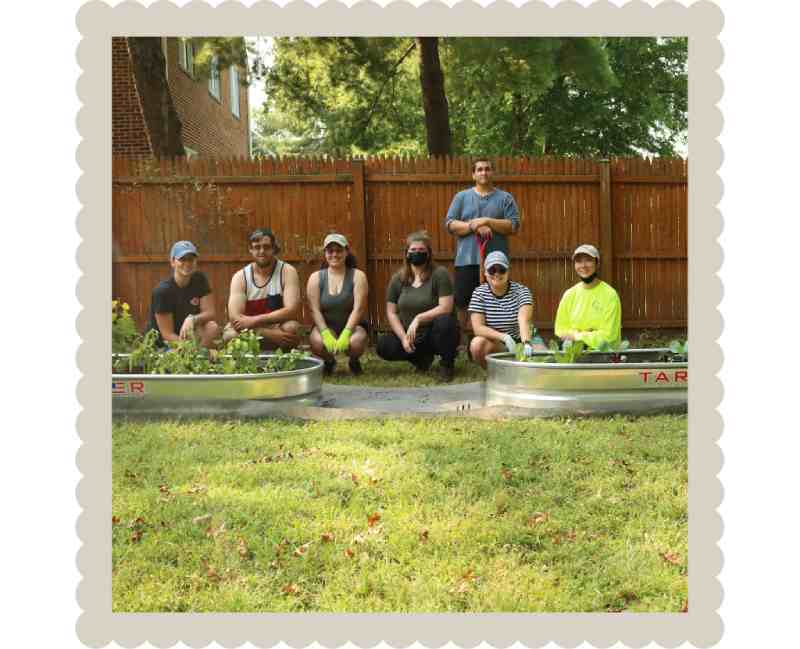
THANK YOU!
The EJA wants to extend a huge thank you to everyone who donated yard sale items, or supported our cause through sales and donations! We could not have done with without your help!
Additionally, we would like to thank the Dunn Loring Volunteer Fire and Rescue Department for allowing us to host our yard sale in their lot.
Finally, thank you to the volunteers who came out and helped us with Phase Three!
Why Community Gardens Matter
You may be wondering why we chose to build a garden, as opposed to donating directly to Second Story. As a company deeply rooted in doing what is right for people and the planet, we knew the benefit of a community garden would exceed any other donation we could make. Community gardens improve the quality of life for the people (and the environment) around it!
The truth is, we often don’t see the significance of something until we are without it. Simple moments, such as a taking a walk down a canopy-shaded street, enjoying the bursting flavor of perfectly ripe fruit, or taking a moment of peace watching pollinators land on flowers in your yard, are not available to everyone. Disadvantaged communities, from low-income neighborhoods to marginalized groups of people, often do not have the access to safe outdoor spaces or healthy food as we do. By building a fruit and vegetable garden, we are able to improve the quality of life for everyone at the shelter. It may be surprising just how great the benefits of a garden are!
Benefits of a Community Garden:
- Alleviates food insecurity by providing an accessible source of food to people who otherwise wouldn’t have access to it. Areas without access to healthy reliable food are known as food deserts.
- Teaches people a new skill or hobby. We have offered to teach anyone the skills to maintain the garden!
- Enjoy the outdoors. Having a garden encourages people to spend more time outside in nature.
- Reinforces food sovereignty.
- Creates a safe place to relax. Studies have shown that spending time outside can improve mental health and reduce stress.
- Healthier diet. By growing our own fruits and vegetables, we are more inclined to eat them frequently.
- Reduces food miles by shortening the distance (and thus pollution emissions) that our food has to travel to make it to our plate.
- Increases biodiversity!
How To Keep Your Community Garden Healthy

Much like any other garden, a community garden will need some TLC in order to thrive. While a garden doesn’t need to be micro-managed, it is important to keep a close eye on your plants to ensure their needs are met (before they wilt)!
RTEC’s Tips and Tricks for Community Garden Care:
- Plant with the seasons! Don’t try to fight mother nature. You will have more success (and flavor) planting seasonal produce.
- Beware of pests! From miniscule bugs to large hungry deer – your garden looks like a buffet to wild life. In fact, our garden got munched on by deer last weekend! We are always learning and growing, and now we know the value of deer fencing! If your trees are victims of deer damage, we can help.
- Find the sun (and follow it). A good garden is all about location, location, location. RTEC’s certified arborist, Jim Osborn, helped us determine the ideal spot for our plants to get the most sunlight as the shade shifts throughout the day.
- Choose a good soil. We recommend an organic blend rich in nutrients.
Give Your Garden The RTEC Treatment

If you are looking for an extra boost for your plants and garden, we’ve got your back! Make sure to click the links to learn more about each of our services.
- Bio-stimulants: we consider bio-stimulants to be the best thing you can do for any of your plants. It is like a multivitamin to plants! We recommend getting it in the fall, so act soon!
- Mulching: a good layer of mulch can go a long way for trees and gardens. When do right, mulching can boost your garden’s health.
- Canopy Protection Program: if you want an extra pair of eyes on your plants all year long, our canopy protection program is the way to go. A technician will frequently visit your property to treat for pests and diseases.
RTEC Treecare was proud to assist the Environmental Justice Alliance in giving back to the local community through this community garden! We look forward to expanding our Grow! program to build more local gardens for everyone in the DMV to enjoy! This garden will allow the children to have safe access to healthy food for years to come.
Do you still want to get involved? You can use the links below to donate directly to Second Story, sign up to help maintain the garden, and to donate to the Grow! Initiative.



